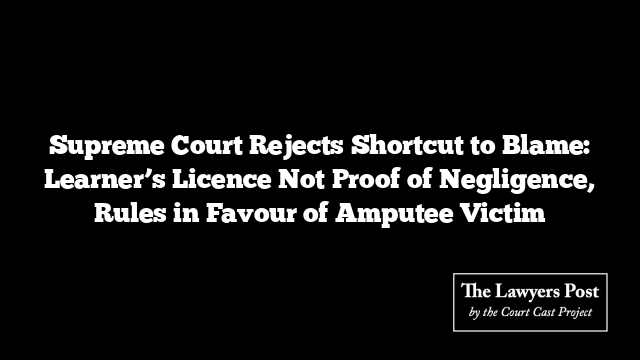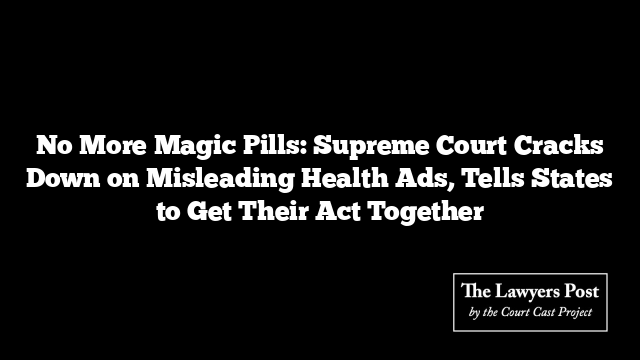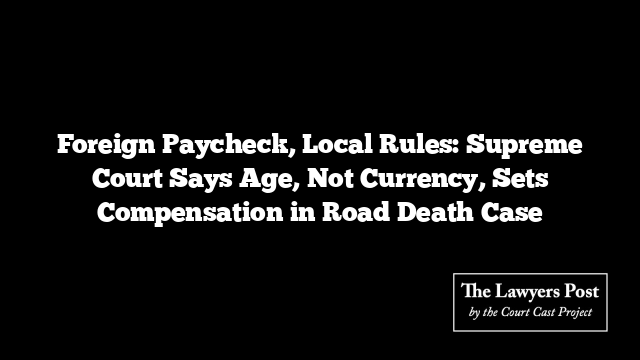In a powerful judgment that cuts through years of insurance company tactics and flawed assumptions, the Supreme Court ruled that simply holding a learner’s licence does not make a driver automatically negligent in a road accident case.
The top court, led by Justices Sudhanshu Dhulia and K. Vinod Chandran, overturned earlier rulings that had reduced compensation on the assumption that a learner’s licence equated to contributory negligence. The case involved a man who lost both his legs after the scooter he was riding pillion on collided with a rashly driven trailer.
The Motor Accident Claims Tribunal (MACT) had initially awarded ₹7.5 lakh, pinning 40% of the blame on the scooter driver. The High Court rubber-stamped that decision, suggesting the scooter driver had “better visibility” and should’ve avoided the trailer’s tail-end. That line of reasoning didn’t sit well with the Supreme Court.
Calling out the flawed logic, the Court made it clear: holding a learner’s licence doesn’t automatically mean a person caused or contributed to an accident. Referencing an earlier precedent (Sudhir Kumar Rana v. Surinder Singh, 2008), the bench underlined that a licence—or the lack of a full one—is not the same as causing an accident. There has to be proof that the licence status led to the crash.
“Finding someone not cautious is one thing. Finding them negligent is another,” the Court noted firmly.
The justices dismantled the idea that the scooter driver’s “better visibility” could be presumed as grounds for fault. Whether visibility played a role is a question of fact, not speculation—and that fact was never proved.
The insurance company, the Court held, failed to show how the scooter driver’s licence status contributed to the crash. Without that link, there’s no contributory negligence—only assumptions, which have no place in compensation rulings.
In the end, the Court not only scrapped the earlier findings but boosted the compensation to ₹16 lakh—more than doubling the original award—for the man who had suffered the traumatic amputation.
The ruling sends a clear message: shortcuts in logic won’t be tolerated when lives are upended and justice is on the line. Holding a learner’s licence doesn’t make you an offender by default. If the law wants blame, it has to earn it—fact by fact.





